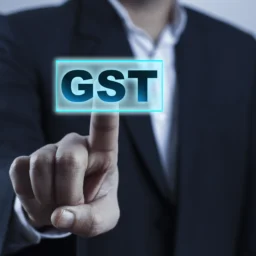
GST Registration in Trichy: A Complete Guide for Local Businesses
Navigating GST registration in Trichy? You’re not alone. Whether you’re starting a small retail shop, running a service agency, or selling on an e-commerce platform, understanding how Goods and Services Tax (GST) applies to your business is critical for legal compliance and long-term success.
This guide breaks down mandatory registration rules, eligibility thresholds, types of GST, and common mistakes to avoid — all with a local focus for businesses in Trichy.
Who Must Register for GST in Trichy?
Under India’s GST framework, certain businesses are legally required to register for GST, regardless of turnover:
MANDATORY GST REGISTRATION APPLIES TO:
- Interstate Suppliers: Selling goods/services across state borders
- E-commerce Operators: Managing online marketplaces like Amazon, Flipkart, etc.
- E-commerce Sellers: Businesses that sell products on e-commerce platforms
- Casual Taxable Persons: Businesses operating temporarily in Trichy without a fixed location
- Non-Resident Taxable Persons: Foreigners doing business in India
- Input Service Distributors (ISD): Distributing input tax credit across branches
- Reverse Charge Liable Businesses: Where the buyer pays the GST instead of the seller
- TDS Deductors: Entities required to deduct tax at source under GST
- OIDAR Service Providers: Offering digital services from outside India to Indian consumers
- Agents of Suppliers: Who act on behalf of a taxable person
GST Registration Threshold in Tamil Nadu (Normal Category State)
If your annual turnover crosses these limits, GST registration becomes mandatory:
| Business Type | Goods | Services |
|---|---|---|
| Normal Category (e.g., Tamil Nadu) | ₹40 Lakhs | ₹20 Lakhs |
| Special Category States | ₹20 Lakhs | ₹10 Lakhs |
Even if your turnover is below the limit, you may voluntarily register to enjoy input tax credit and supplier credibility.
Types of Taxable Persons Explained
- REGULAR TAXPAYER
Operates continuously and must file monthly/quarterly GST returns based on business volume.
- CASUAL TAXABLE PERSON
Operates temporarily without a fixed business place — for example, at local fairs or expos.
- NON-RESIDENT TAXABLE PERSON
Foreigners who occasionally conduct business in India without a permanent establishment.
GST & E-commerce Businesses in Trichy
If you’re selling via e-commerce platforms (like Meesho, Amazon, Shopify), GST registration is compulsory — even if your revenue is below ₹20–40 lakhs.
Additionally:
- E-commerce operators must register and deduct 1% TCS from sellers’ revenue.
- Sellers must file returns to claim TCS credit.
What Is Form GST REG-01?
This is the official application form used to register for GST. It must be submitted online through the GST portal, along with relevant business documents. Once approved, you receive a GSTIN (GST Identification Number).
Types of GST Explained
| Type | Applies To |
|---|---|
| CGST | Central tax on intra-state supply |
| SGST | State tax on intra-state supply (e.g., Trichy to Chennai) |
| IGST | Tax on interstate supply (e.g., Trichy to Bangalore) |
| UTGST | For union territories (not applicable to Tamil Nadu) |
Benefits of GST Registration for Trichy Businesses
- Legal Recognition as a GST-compliant business
- Input Tax Credit to reduce tax liability
- Eligibility for Government Tenders
- Smooth Inter-State Trade
- Better Credibility among clients and vendors
- Seamless Export Refunds (for exporters)
- Avoidance of Penalties and audits
- Streamlined Compliance via a unified online portal
What Happens If You Don’t Register?
As per the CGST Act, 2017, failing to register for GST can lead to:
- A penalty of ₹10,000 or tax evaded — whichever is higher
- In severe cases, penalties up to ₹2 lakhs
- No input credit, blocking business growth
- Disqualification from many government contracts
Common Mistakes to Avoid During GST Registration
- Using incorrect PAN or Aadhaar
- Uploading incomplete address proof or utility bill
- Entering wrong invoice details or skipping serial numbers
- Missing return deadlines (monthly/quarterly/annually)
- Ignoring mismatches in GSTR-2A and GSTR-3B
- Choosing the wrong tax scheme (regular vs composition)
- Not verifying your supplier’s GSTIN, affecting ITC claims
Final Thoughts
GST registration in Trichy is more than a legal requirement — it’s a strategic decision that can empower your business. From input tax credits and smooth logistics to enhanced trust and government opportunities, being GST-compliant opens many doors.
If you’re unsure where to start, a tax professional like Auditor Shiva in Trichy can help simplify the process, ensure compliance, and avoid costly mistakes.
Typically, it takes 3–7 working days if all documents are correct and there are no discrepancies. However, it may take longer if physical verification is needed.


